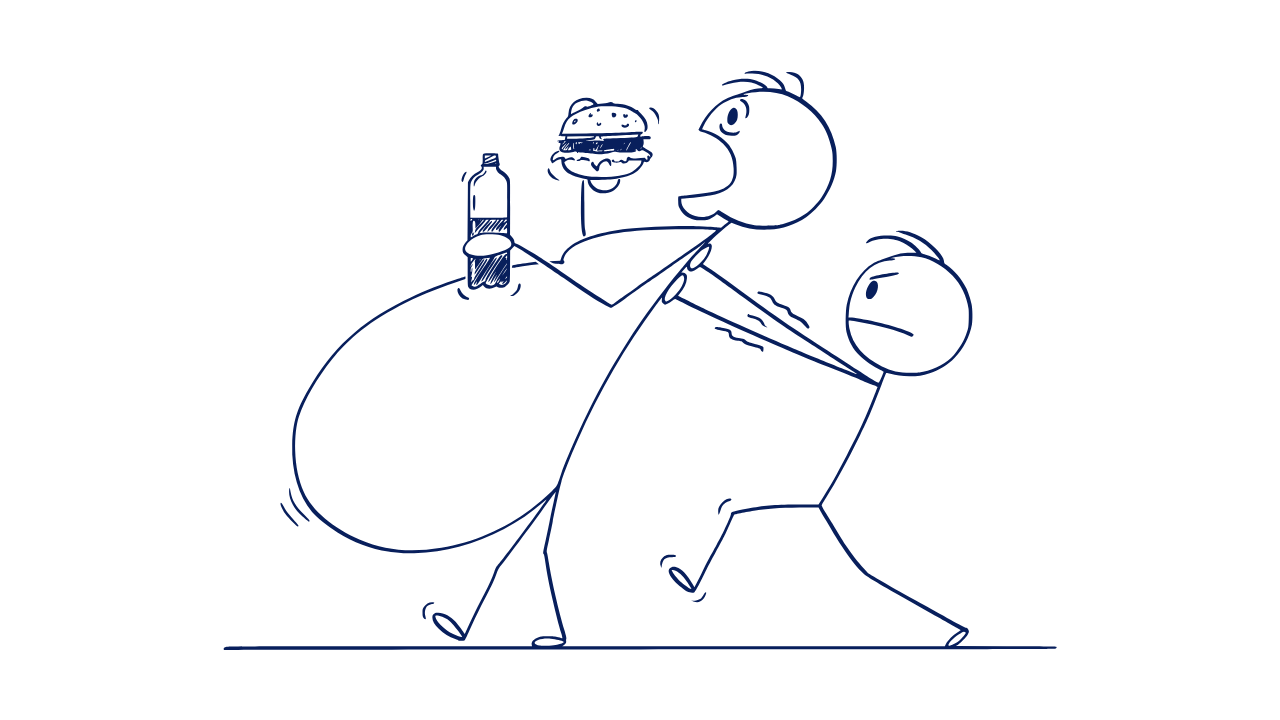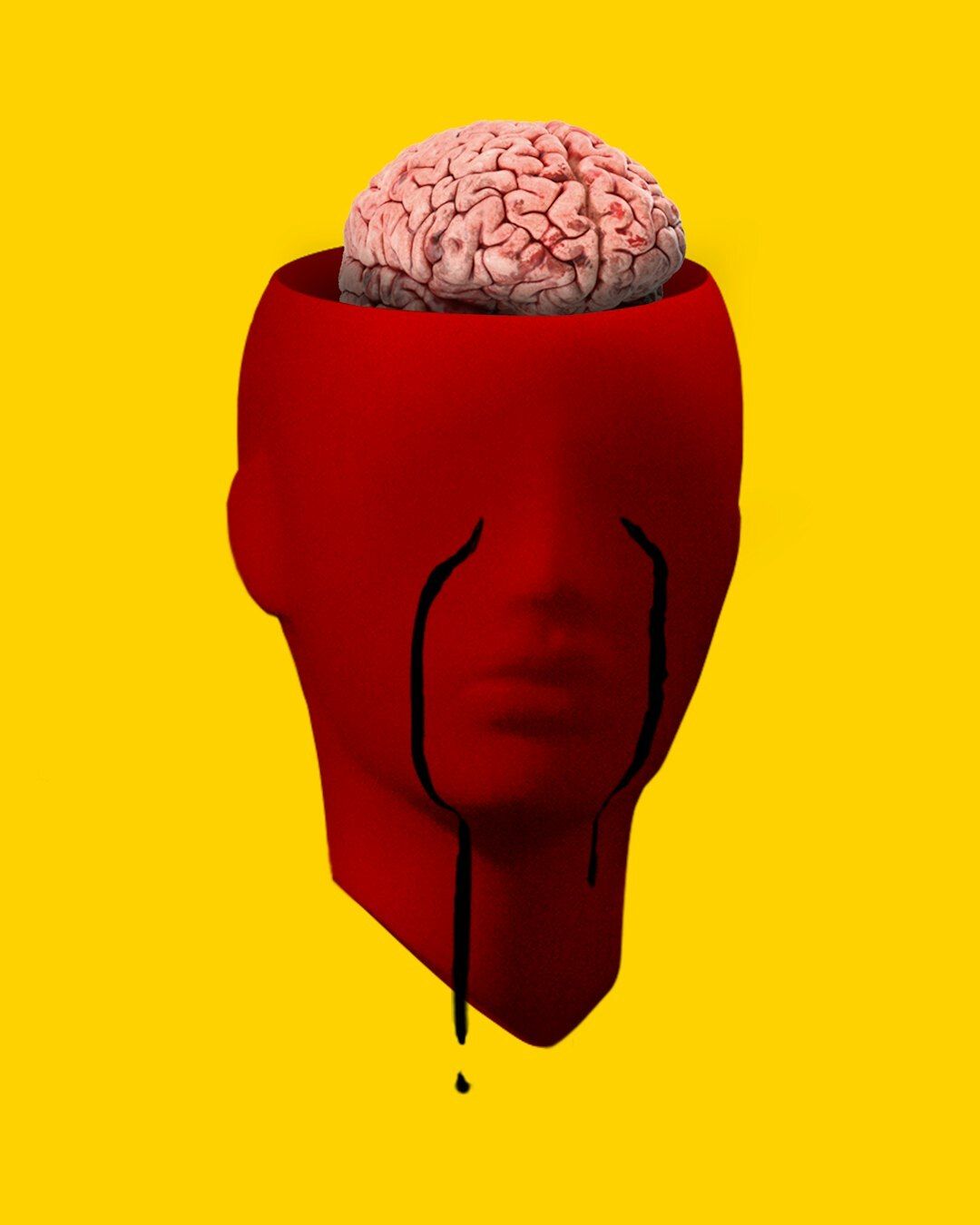Being intelligent means you get the special privilege of watching yourself make terrible health choices in real-time while knowing exactly why they're terrible.
You research the perfect workout routine but never start it. You know what foods fuel your body but reach for junk when stressed. You understand sleep science but scroll until 2 AM anyway.
For years I had the scientific knowledge to optimize human health but couldn't seem to apply it to my own life. Despite my background in health and medicine, I was trapped in the same "I know but I don't do it" cycle.
Here are 11 specific ways your intelligence sabotages your health, plus the exact framework that transforms your analytical mind from your biggest obstacle into your greatest health asset.
11 Reasons Your Brain Sabotages Your Body
1. The Knowledge-Action Gap
Knowing what to do doesn't automatically translate to doing it. Smart people often get stuck in research mode, overthinking instead of taking action or paralysis by analysis. They mistakingly believe that understanding equals implementation.
2. All-or-Nothing Thinking
You apply your perfectionist mindset and high standards inappropriately to health. You view health choices as either "perfect" or "complete failure" with no middle ground. So when you slip up, you abandon everything. But building a healthy lifestyle is never a black-and-white thing, it's all about navigating the gray.
3. Optimization Bias
You dismiss basic strategies as "too simple" and chase advanced or cutting-edge solutions so you end up doing nothing. Smart people have the tendency to over-prioritize the perfect or optimal solution at the expense of good enough or practical options. They fear inefficiency or wasted effort. They’re used to solving problems optimally in other domains (like work or school). So you get caught up in fad diets instead of sustainable habits.
4. Overconfidence in Willpower
You believe you can simply "think" your way through cravings and temptations. Or, that you can outsmart the consequences of your poor health choices later.
5. Status and Image
You make food choices based on what others expect or what projects success, rather than what serves your health. Avoiding healthy behaviors that might seem "uncool" or obsessive to your family and peers.
6. Poor Environmental Design
You rely on willpower instead of creating systems, failing to set up your environment for automatic success. Smart people often fail to plan for obstacles in their health goals, assuming they'll make good choices "in the moment."
7. Time and Priority Mismanagement
You always prioritize urgent tasks over important health behaviors, treating health only as "nice to have." A lot of smart people do not health as an investment in productivity and performance. Some even view self-care as selfish or unproductive.
8. Decision Fatigue
Smart people have unique pressures. After making countless work decisions, perhaps even family matters, you have little mental energy left for healthy choices and default to whatever's easiest. The high cognitive load throughout the day leads to poor health choices
9. Stress Eating and Coping Mechanisms
You turn to comfort foods during high-pressure periods instead of having alternative stress-relief strategies in place.
10. Delayed Gratification Struggles
Despite being future-focused in your career and relationships, you choose immediate food rewards over long-term health benefits.
11. Lack of critical health literacy:
Intelligence in one domain (e.g., math or tech) does not guarantee the skills needed to critically evaluate health information. Many people lack the tools to assess medical advice from sources like the internet or friends.
Key Insight
The fundamental issue is that smart people often apply intellectual approaches to problems that require behavioral and emotional solutions. You try to think your way out of situations that require environmental design, habit formation, and emotional regulation skills.
This creates a perfect storm where your intelligence actually works against you—you overthink, overanalyze, and underestimate the complexity of behavior change, leading to repeated cycles of starting and stopping healthy habits.
The SYSTEMS Approach
Here's the truth: Your brain isn't broken, your system is.
Instead of fighting your biology, let's work with it. The solution isn't more willpower—it's better design.
Core Philosophy: Design Automatic Success, Don't Rely on Perfect Decisions
Replace willpower-dependent choices with environment-dependent systems that make healthy behaviors the default option.
The S.Y.S.T.E.M.S. Framework:
S - Simplify Decisions
Remove choice complexity through templates and automation. Same breakfast every day beats decision paralysis every morning.
Y - Your Environment is Your Behavior
Design physical spaces that prompt healthy choices. Make the healthy option the easiest option—always.
S - Start Stupidly Small
Begin with actions so small they feel ridiculous to skip. Five push-ups beats zero every time.
T - Tie Habits Together
Stack new behaviors onto existing routines using "if-then" planning. "After I pour my coffee, then I take my vitamins."
E - Expect and Plan for Obstacles
Design recovery protocols for when systems break down. Plan for high-stress, low-energy, and time-crunched situations.
M - Measure Systems, Not Just Outcomes
Track process behaviors (did I prep meals?) over results (did I lose weight?). Celebrate system adherence.
S - Social Architecture
Surround yourself with people who support your health systems. Communicate your approach to friends and family.
Key Mindset Shifts:
"Health is a skill, not a talent" (appeals to your growth mindset)
"Small systems compound into big results" (connects to your long-term thinking)
"Consistency beats perfection" (counters your all-or-nothing tendencies)
Practical Implementation: Your 4-Step Action Plan
Step 1: Fix Your Environment First
Remove temptations from easily accessible places
Put healthy cues where you'll see them
Make unhealthy choices require more effort than healthy ones
Step 2: Build One Tiny Daily Habit
Focus on consistency before intensity. Choose something you can do even on your worst days:
Drink one glass of water upon waking
Take the stairs instead of elevator once per day
Eat one piece of fruit with lunch
Step 3: Create Obstacle Protocols
Plan for disruptions before they happen:
"If I'm working late, then I'll have my backup healthy dinner ready"
"If I'm stressed about a deadline, then I'll take 3 deep breaths before eating"
"If I'm traveling, then I'll pack protein bars and research healthy restaurant options"
Step 4: Add Systems Gradually
Expand only after your foundation is solid. Master one system before adding another.
Ready to Put This Into Action?
If you want to start building sustainable health habits without overhauling your entire life, I created The Simple Health Habit Reset: 7-Day Challenge for Busy Achievers.
Instead of another overwhelming program, you'll pick just one simple change from each of the 6 lifestyle medicine pillars. It takes about 10 minutes per day, you can start anytime, and it's designed specifically for people who think they're "too busy" for health.
This week, pick ONE system to implement. Ask yourself: "What's the smallest healthy action I can take today that I could still do on my worst day?"
Reply and tell me your biggest health challenge as a high-achiever. I read every response and use the best questions as inspiration for future newsletters.
Your health is your competitive advantage.
Use it wisely.
Grazelle 🌱



